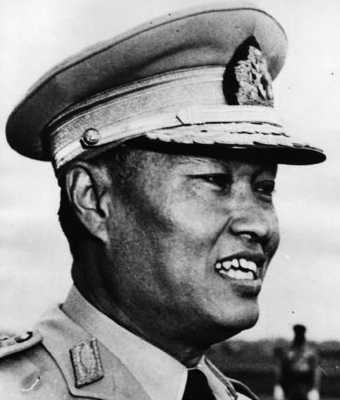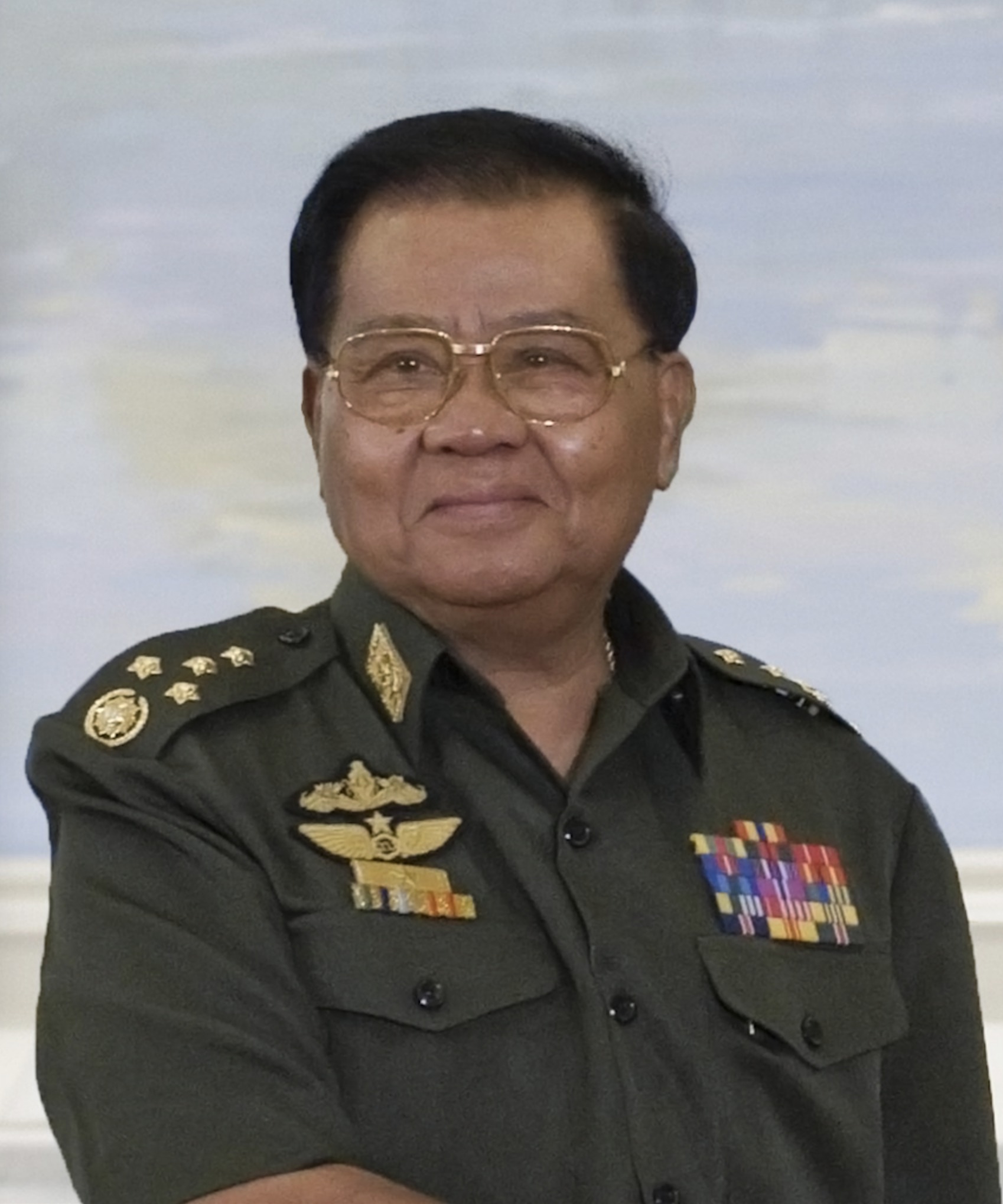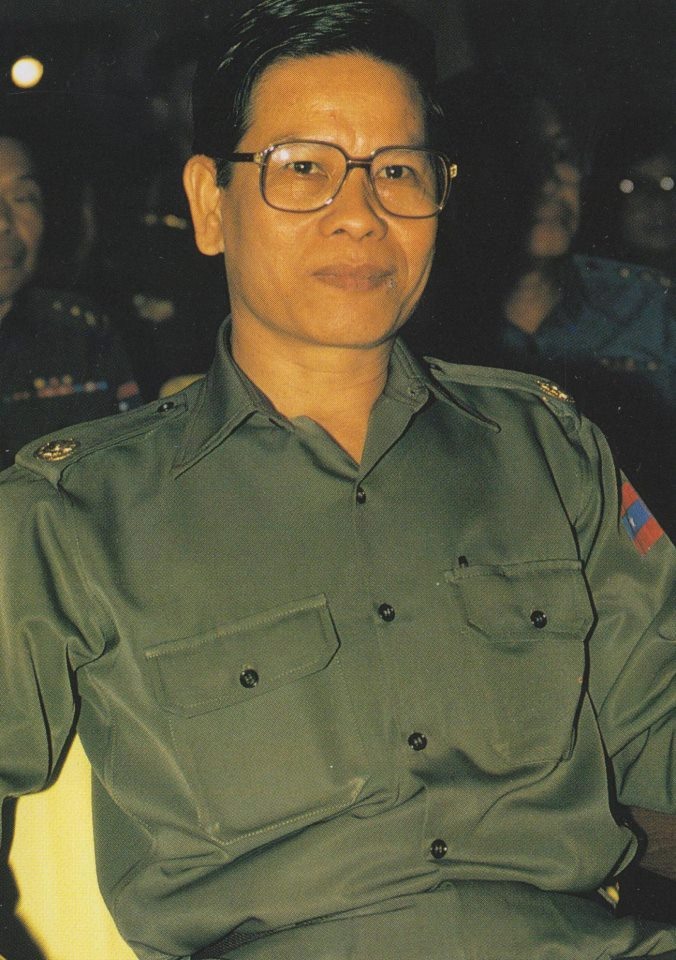When it comes to elections in Myanmar, there have been three main sinners.
Yes, they were sinners. Because they banished elections, they rigged elections, and they annulled the results of elections. As a consequence of their actions, the country lost its parliamentary democracy; the people lost their right to vote; elected governments disappeared; elected parliaments vanished; and the practice of democracy was systematically eradicated.
Given the gross nature of their violations, we commit their names to the historical record as the chief sinners against the electoral process in Myanmar.
The people of Myanmar enjoyed the right to vote for more than a decade after the country restored its independence in 1948. Three elections were held to select governments in 1951-52, 1956 and 1960. All were free and fair. Through the elections, citizens of the country were able to elect the government or leader they preferred. The country was run by elected governments and laws were enacted by elected representatives in parliaments.
Myanmar was one of the earliest countries in Southeast Asia, perhaps in Asia, to introduce democratic elections. It was a proud nation before the first sinner destroyed it.
General Ne Win was the original destroyer of elections and the electoral system in the country. March 2, 1962 was doomsday for Myanmar’s elections and all the fruits that elections are expected to bear—elected government, elected parliaments and the whole system of parliamentary democracy.
Shortly after the stroke of midnight on the morning of March 2, Gen. Ne Win sent his troops and tanks into Yangon with orders to seize all important government buildings, including the presidential residence and the parliamentary building, and the houses of all cabinet members of the elected government.

Before dawn, Gen. Ne Win’s mission was accomplished. President Mahn Win Maung (an ethnic Karen), the elected Prime Minister U Nu and his 11 cabinet members were arrested and sent to detention centers. The only two ministers who escaped arrest were traveling at the time.
Gen. Ne Win’s verbal order to arrest officials extended to many elected members of parliament. More than two score lawmakers were arrested in Yangon, including all ethnic Shan MPs, one of whom was Sao Shwe Thaike, who had served as the country’s first president after independence. In November, eight months after his arrest, he died mysteriously in prison. Many people believe he was killed.
The president, prime minister and all the arrested cabinet members were imprisoned for several years. The general claimed the coup was a last resort as the country was on the brink of a civil war between the central government and ethnic armed groups. But if such was the case, he should have engaged in dialogue with the elected government rather than staging a takeover.
In the decades that followed Gen. Ne Win’s doomsday, Myanmar held no elections, formed no elected governments, convened no parliaments. The dictator uprooted and abolished the parliamentary democracy that had been put in place 14 years earlier. Along with democracy, the country’s open market economy also came to an end, as an era of nationalization was ushered in.
Gen. Ne Win introduced an authoritarian one-party system controlled by the Burma Socialist Programme Party (BSPP) and ruled the country for the next 26 years without holding any real elections. The only voting that took place was in bogus polls in which people were compelled to cast ballots for his single party.
He was the original sinner against elections and democracy in Myanmar.
We cannot ignore the general’s deputies and followers, who, as pillars of his authoritarian system, joined him in his sins. Ne Win, however, was the chief sinner, and it was his legacy of authoritarianism that endured for so long.
Due to his sinful actions over the course of 26 years, dictator Gen. Ne Win faced a political storm, known as the ’88 uprising. The nationwide pro-democracy movement forced him to step down on July 23, 1988, after promising to hold a multiparty, democratic election.
The original sinner had finally fallen into disgrace.
In the wake of the ’88 uprising, new rulers came to power, promising elections.
The successors to Gen. Ne Win’s regime, General Saw Maung, Lieutenant General Than Shwe and Brigadier General Khin Nyunt, staged a coup following the uprising and installed their own regime, the State Law and Order Restoration Council (SLORC).
Publicly, the new generals said their main duty would be to hold elections as an interim government and to hand over power to the winning party. The junta announced that multiparty elections were to be held on May 27, 1990.

Gen Saw Maung, the head of the SLORC, repeatedly promised in speeches that the military government was just an interim administration that would hold the election and hand over power to the winning party before returning to the barracks where they belonged. He also said that drafting a constitution was not their duty.
Brig-Gen Khin Nyunt, the powerful secretary-1 of the junta, said in a meeting with foreign military attaches four days after the junta staged its coup on Sept. 18, 1988 that elections would be held as soon as law and order had been restored, after which the military would hand over state power to the winning party.
The new generals kept their promises. The election was held on May 27, 1990, 30 years after the country had last gone to the polls in 1960. A total of 93 parties contested the election.
And the elections were considerably freer and fairer than expected. The National League for Democracy led by Daw Aung San Suu Kyi won a landslide victory, claiming 392 seats—over 90 percent of the 492 seats on offer.
It was at this point that a pattern established by Gen. Ne Win was repeated.
Prior to the election, the SLORC was convinced that the National Unity Party (NUP), a reincarnation of Gen. Ne Win’s BSPP, would gain a significant number of seats in the election. But the NUP won a paltry 10 seats.
Embarrassed by the result, the ruling generals appeared less than enthusiastic about handing over power to the winning party, though Snr-Gen Saw Maung reportedly intended to keep the promise. It’s believed this led to his later removal as junta chief.
A few months after the election, the junta had still shown no signs of handing over power, though the NLD urged the junta to let it enter parliament and form a government as the winning party. The junta’s response was to crack down on the winning party and its elected members.
Following the election, Major General Khin Nyunt’s Military Intelligence arrested over 200 elected members of the NLD along with leaders of ethnic parties that contested the elections and stood with the NLD. Hundreds of party leaders and elected members were given lengthy prison terms.

Breaking their word, Maj-Gen Khin Nyunt said the winning party was not elected to convene parliament or to take power immediately. Actually, the junta led by Senior General Than Shwe and Gen Khin Nyunt never honored the election’s result—ever.
The new sinners—Snr-Gen Than Shwe and Gen. Khin Nyunt—were harsher than their predecessor Gen. Ne Win. They arrested hundreds of elected members of parliament and political party leaders. Blatantly refusing to honor the election result, they continued to rule the country without legitimacy for the next 20 years. As in the period after Gen. Ne Win’s coup, there were no elections, no parliaments and no elected governments from 1990 to 2010. During that time, many of the lawmakers elected in 1990 passed away. It was as if the election result had simply evaporated.
The story doesn’t end there, though.
The junta led by Snr-Gen Than Shwe held another election in 2010, partly as a way of “officially” annulling the result of the 1990 election. (By that time, Khin Nyunt was no longer a player, having been purged in 2004.). The larger motivation was to facilitate Snr-Gen Than Shwe’s “exit strategy”: the senior general had carefully plotted for himself a route to a comfortable retirement after 2010. As long as his underlings were in power, he would be safe. To “legitimize” his successors, he handed them a pro-military Constitution that he had drafted, orchestrated an election, and forced some of his subordinates to swap their uniforms for business suits and run in it.
The election of 2010 was totally different from the one in 1990. Many dismissed it as neither free nor fair, and lacking inclusiveness. The main parties, including the NLD, boycotted the election, saying it was undemocratic. Election observers said advance voting across the country was rigged.
The result turned out as the old senior general expected—the junta-backed Union Solidarity and Development Party won a landslide victory. That’s what Snr-Gen Than Shwe (together with Gen. Khin Nyunt) planned to achieve after the 1990 election. His handpicked man, General Thein Sein, became the president and ruled the country for the next five years. Here again, Snr-Gen Than Shwe’s deputy generals helped to commit this electoral sin, but he was the sinner-in-chief, as he had masterminded it all.
Under President Thein Sein’s government, the by-election of 2012 and the general election of 2015 were recognized as free and fair. For this merit— though he became president though a controversial election—he is not to be recorded here as a main sinner against elections.
Whatever the case, it should be noted that the demise of democracy lasted in Myanmar for nearly two generations due to these three sinners. In the absence of democracy, universal norms of human rights vanish. Such was the case in Myanmar, where the military dictatorship oversaw rampant infringements of civil liberties. People were forced to take orders from the generals, who knew nothing apart from how to bark orders. No one born after 1990 had even heard of an election until 2010.
The consequences are still palpable today, even under a democratically elected government. All we can hope is that Myanmar will now be free of sinners against elections, like those mentioned above.
In case you’d forgotten: In the history of elections in Myanmar, there are three main generals who banished elections and annulled elections and rigged elections. Their names are Gen. Ne Win, Snr-Gen Than Shwe and Gen. Khin Nyunt.
You may also like these stories:
A Few Predictions for Myanmar’s Upcoming Election
UN Rapporteur: Finding the Truth or Furthering False Narratives in Myanmar?
Myanmar’s Election a Chance to End a Cycle of Man-Made Disasters
















